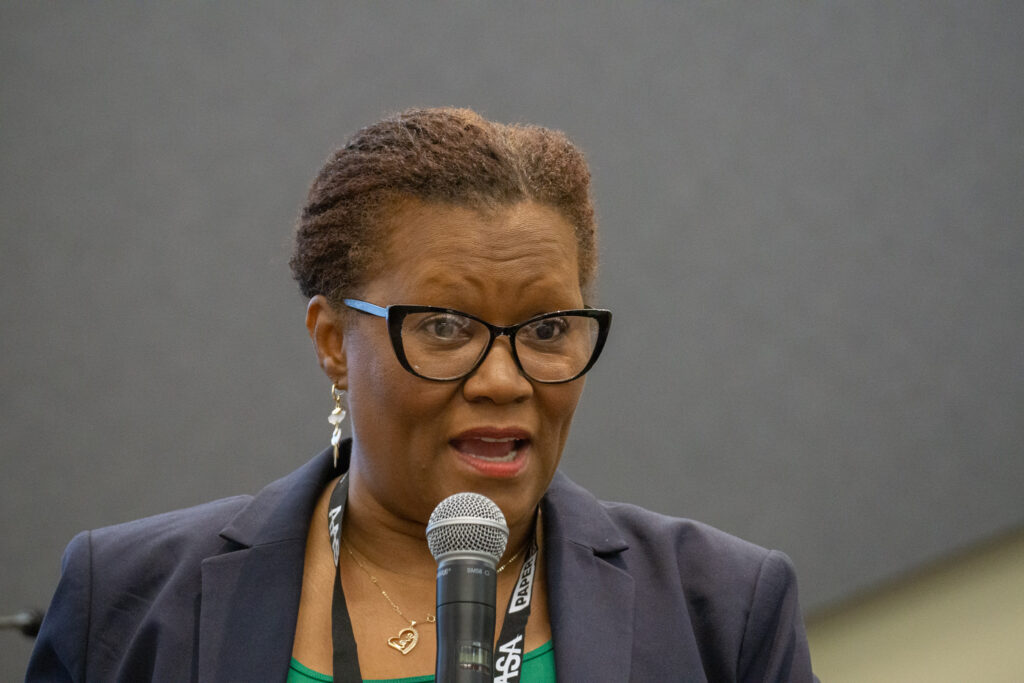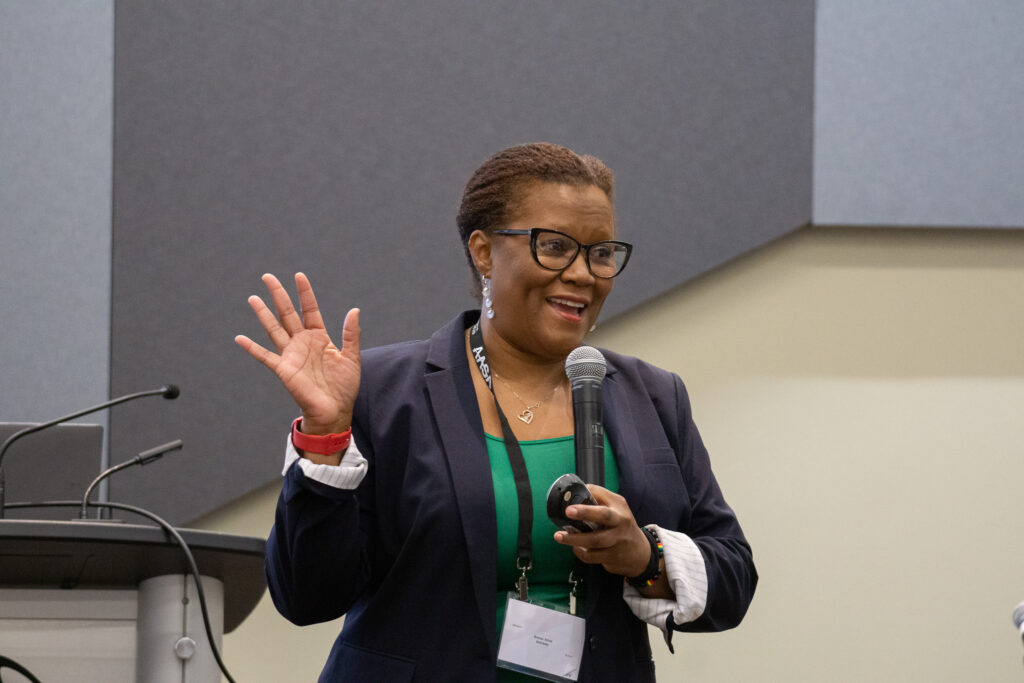Brenda (Bren) Elliott, chief of school improvement and support with the District of Columbia Public Schools, said she comes from a lineage of African American, European and Indigenous people. She admits her diversity is her strength.
She told her story in a Saturday conference session, “Getting to Educational Equity.”
Born incredibly poor, Elliott said she was taught by amazing teachers who gave her the confidence as an academic leader. Now, she sees the interdependence of all people.
She has tried her best in the numerous educational leadership positions she’s held to combat the stereotypes many teachers and administrators see in Black, Indigenous and people of color. “For every child, we have to focus on the whole child. Children of color are very resilient,” she said.
But there are roadblocks to the journey and no shortcuts. “If African American and Hispanic student performance was equal to white student performance, the impact would be an additional $50 trillion to our economy,” she said.
For superintendents on the journey to anti-racism, she encourages the district to have an equity vision. Superintendents need to build partnerships across the district to support their equity work and make sure that all central-office leaders embed equity into their work.
“Ask yourself this question,” she challenged the audience. “Is every policy seen through equitable eyes?”

Doing this, schools can ensure that every student has access to a quality education, regardless of their zip code. For teaching, some landmarks on the journey to look for are: teacher effectiveness, high expectations, and a whole child approach to education.
“Good teaching cannot survive in chaos,” Elliot said. “We must address all the things that prevent a child from learning. We have to build positive school culture and a positive school climate. We have to do everything we can to remove them from the drama they experience at home.”
Learning to teach with positive responses can address the gap. Elliot told the audience: “There is no one way to plan for your journey. If you want to go far, go with others.”
Some ideas that have worked for her students include: assessment data, field trips to colleges, and have academic pep rallies. She added, “We have to recognize the problem. The hours of our school day are for all children. This is not just a matter of fairness, but of promoting social mobility and economic opportunity for all.”
(Brad Domitrovich is a communications consultant in Georgetown, Texas.)


